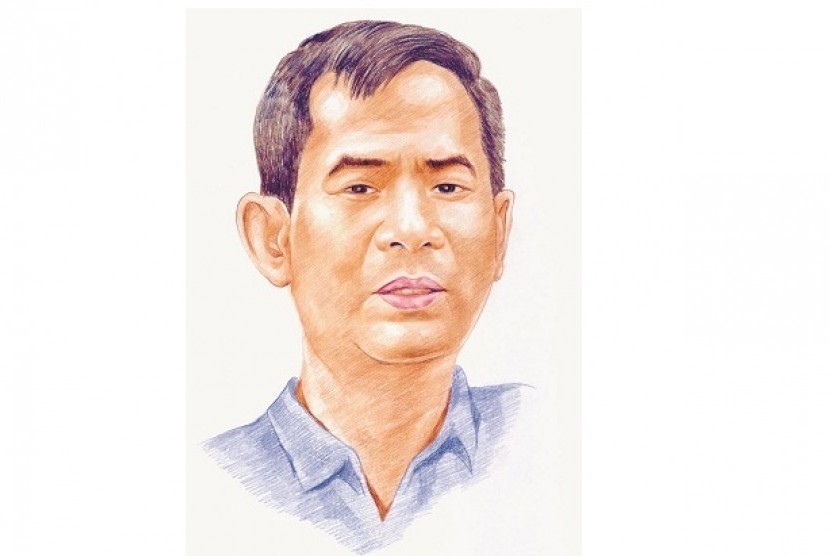REPUBLIKA.CO.ID, By Nasihin Masha
In a small meeting in Jakarta last week, several leaders of Islamic parties (both based on ideology and voter base) gathered. This was the third meeting. They tried to look for the possibility of taking a common step in 2014 presidential election. The meeting was similar to the meeting of 1999 and 2004 election. Meanwhile, ahead of the 2009 elections there were no major effort of the sort. Currently, there are even two currents. The other was more likely initiated by one person, while this meeting was initiated by a number of figures.
The emergence of this initiative indicated the persistence of consciousness to unite, although not to melt. From a series of meetings, it seemed to have not produced an agreeable platform or more. There are still hopes and desires, but not ideals. They still tend to brainstorm. Of course it does not mean there was nothing important or interesting in the meeting. There were quite a lot of interesting things. They are the key figures involved in the organization of the state and political activities. They are also the men of activist since their school and college. They are rich with experience and knowledge.
One of the interesting opinions is the recognition, that in the last two elections, Islamic parties are trying to move to the middle (center). It is indeed a fact. In the last 10 years, they are no longer talking about the Islamic ideological themes. Even in the 'ideology of development', they did move to the center, close to Golkar or Democrat ideology, which tends to be pragmatic and eclectic. Incidentally, in 10 years, the Islamic parties with Golkar did political coalition with the Democrat. The shift to the center of vision and ideology is certainly somewhat disconnected from the historical roots of the Islamic movement.
History of the Islamic movement in Indonesia aligned towards socialism and democracy. This is especially reflected in movement of SI and Masjumi, while NU is initially emphasized aspects of the tradition. Since the party was modernized by Gus Dur, it also became a movement emphasized socialism, democracy, and humanism, of course including PKB. Ideas about equity, economic nationalism, and the obligation of the state to take a role in moving the development were their central points. It is certainly different from the centrist parties that emphasized growth, shrinking the role of the state, and sold off foreign role. The movement of Islamic parties into the center accompanied with the pragmatic in their political behavior. Their simplicity and honesty are away from attitudes exemplified by the early generations of Islam movement. No wonder on the issue of corruption and transactional politics, they become difficult to distinguish with the rest of politicians from other parties.
Awareness to restore political path of Islamic parties to their original path is worthy of a strong portion. Building a common platform make it easier for Islamic parties to unite, before talking about the presidential figure and building coalitions. The idea of prioritizing funding to build the party and political horse-trading were the idea to keep away the Islamic party with voters. It can be seen from the movements of the vote since the 1955 elections to 2009. In general, the vote acquisition of Islamic parties in total is still relatively good, although there was a tendency of decline. These are the figures; in 1955, it gained 43.93 percent; 1999 fell to 37.02 percent; 2004 rose again to 38.35 percent; 2009 dropped again to 29.21 percent.
However, if an Islamic party was down, the vote will move to other Islamic parties. They are related in one vessel. So was the movement of parties outside the Islamic parties. If PDIP is down then the vote will be accommodated by Golkar or Democrat. If the Democrats down the vote will be accommodated Golkar, Nasdem, or Hanura. They are related in one vessel to another. Indeed, in the 2009 election, there was a slight leak, some Muslim voters began crossing into different 'ghetto'. This is because they can show the idioms of Islam as a religious stamp on the Democratic or the presence of Islamic wing in Golkar and PDI-P. Thus there are two separate related vessels in a composite.
On the other hand, based on a Cirus Surveyor Group survey, public is demanding issues concerning cheap food prices, the construction of roads infrastructure, ease of finding work, and fighting corruption. All the issues are more closely to fight economic equality and the role of the state. They are more closely to the original ideology of Islamic parties. Not to the ideology of the center parties, which more closely to economic growth, defending corporate, and protecting social elite. If Islamist parties back to their original idea, they will be near to public demands. It is time for politicians of Islamic parties back to their historical role and historical roots. Stop being a party figure and being uprooted and alienated from the mass.
Do not be afraid to be such Islamic parties. What must be removed from the Islamic party struggle is the idea of an Islamic state, which is now also they leave. On the other hand, it must protect Muslims in worship and away from the things of vanity. Nowadays people just ask the role of Islamic parties in terms of halal food, ease of worship, and the use of the veil. They did not speak up and people cannot be guaranteed as well as unprotected.
Stop dreaming of the blue sky or yellow rice, but take care of the grass and green. History and social configuration of a nation is not always easy to give space to change. In every social grouping gene records are always stored history, knowledge, and values on their own.
Fill public expectations as we plant seeds. Later we will harvest it.


